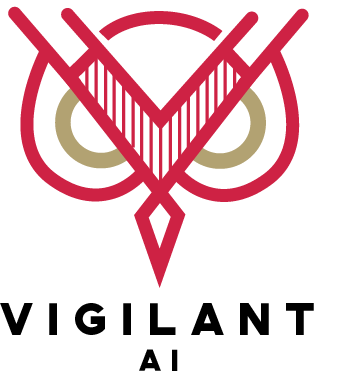Like many industries, the accounting and audit profession is dealing with a severe shortage of skilled workers that adversely affects employees and audit firms. We need to attract and ensure we are retaining auditors
With fewer new graduates entering the job market, an aging workforce nearing retirement, and an exodus of accountants to other industries, audit firms must find ways to attract and retain skilled employees.
While the shortage is expected to continue in the near to medium term, audit firms can take steps now to reduce the burden on staff. By investing in technology that automates tedious, repetitive, and time-consuming tasks associated with data collection, management and review, auditors can improve audit efficiency, serve more clients, and allocate scarce technical resources more effectively.
The Challenge of Retaining Auditors in Financial Auditing
At a time when the expectations of clients, regulators, and other stakeholders are higher than ever, multiple trends are combining to create a shortage of skilled and experienced accountants.
First, many accountants are moving away from the industry. A 2023 report from the AICPA found that roughly 75 percent of its members are at retirement age. As these veteran workers retire, firms lose the skills and experiences they have gained over a lifetime of work in the field.
However, retirement only accounts for part of the retention challenge. Many people are leaving the industry at earlier stages of their careers in pursuit of higher wages, greater advancement opportunities, or completely different work.
At the same time, fewer people are graduating with accounting degrees, a multiyear trend that has been accelerated by the pandemic. When asked, young people cited long hours, high-stress deadlines, and lower wages compared to other jobs as a reason to think twice about entering the industry.
Download Attracting and Retaining Auditors
The Impact of the Shortage on Audit Firms
The labour shortage is exerting a broad and varied impact on financial auditors.
At the employee level, the shortage creates a negative feedback loop that puts additional pressure and increases the workload on existing employees. Nearly all accountants suffered from burnout, exhaustion, or alienation from their job at some point, impacting performance, motivation, and happiness. As a result, 76 percent of audit partners said this added pressure is increasing challenges in recruitment and retention.
At the firm level, fewer employees means auditors are less able to respond to client needs. A recent survey found that 42 percent of accountants were turning away all types of work due to staff shortages. Nearly a quarter of firms said they were outsourcing work to other companies, ensuring client projects were completed but reducing the total share of the profit the firm received. Finally, nearly 11 percent said they were considering a merger or acquisition as a way to pool resources, capabilities, and staff, especially among small and mid-sized firms.
Taken together, more than one-third of audit partners said that labour shortages were the top economic risk for their firm.
How Technology Improves Performance and Reduces the Burden on Staff
Audit firms are already taking steps to overcome the challenges mentioned above. Many are engaging directly with schools to introduce the accounting industry to students, encourage more accounting graduates, and build a pipeline of future professionals.
In other cases, firms are re-evaluating their compensation packages, increasing wages, introducing flexible working hours, or expanding employee benefits. Firms are also investing more heavily in training, development, and upskilling employees, especially when it comes to technology.
Technology has a role to play by reducing the burden on existing employees and enabling audit firms to better allocate scarce resources.
Holistic data management platforms designed for audit and financial analysis automate the repetitive and tedious work required to collect, review, and categorize large volumes of data. Advanced AI automatically conducts an initial review, verifying normal transactions and pinpointing areas of risk that need further testing.
The platform can then automatically link all relevant business process data to the chosen transactions, simplifying the work of the auditor and making it possible to exploit, uncover, and review risk.
Instead of spending most of their time reviewing data, auditors can focus their attention on the areas of high risk.
Getting the Full Benefits of New Technologies
Until a better system is in place, the performance levels of today’s auditor will remain at its current plateau. Auditors will spend more time capturing data, reading, and categorizing documents, and linking transactions, reducing the time available for testing. At a time when labour resources are already stretched, this limits the auditor’s ability to take on new clients.
However, technology, on its own, is not enough to overcome the challenges of the labour shortage. As with any new solution, the full benefits can only be achieved if the firm and its employees effectively implement and adopt the solution in their day-to-day workflow.
This can be challenging in an environment where employees are already busy and struggling to keep up with the volume of work. Adding another new platform can lead to technology fatigue, a lack of adoption, and a continuation of the way things have already been done.
When implementing a new solution, be sure to demonstrate to employees how it will benefit them and make their jobs easier. Conduct initial training that enables them to effectively use the platform and introduce ongoing training that goes into more depth over time.
As the system becomes more embedded in the audit process, it can allow for new service offerings that further improve the client experience and generate new sources of revenue for auditors.
Happy Auditors Mean Better Performance and Retention
The routine, repetitive work associated with data collection and review is adding to the burden of auditors who are already dealing with a labour shortage.
Instead, an intelligent data management platform for audit can automate these time-consuming tasks and allow auditors to focus on more fulfilling, valuable, and interesting work.
By speeding up the audit process, audit firms can reduce audit timelines, take on additional clients, and allocate accounting staff more effectively. With the right technology, audit firms can overcome the challenges associated with the labour shortage and deliver more complete and independent audits.



Recent Comments